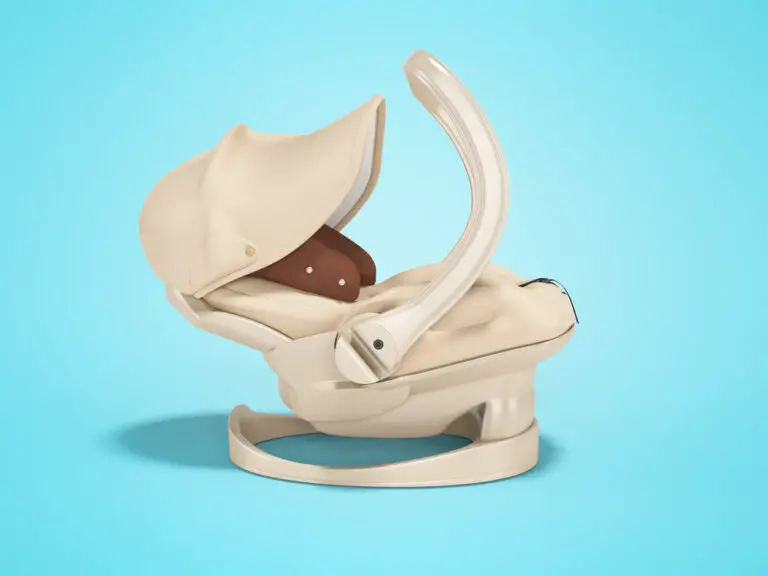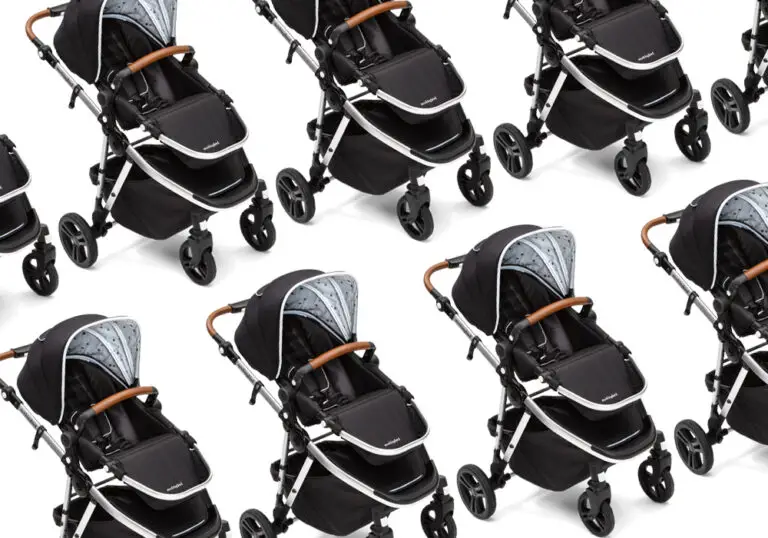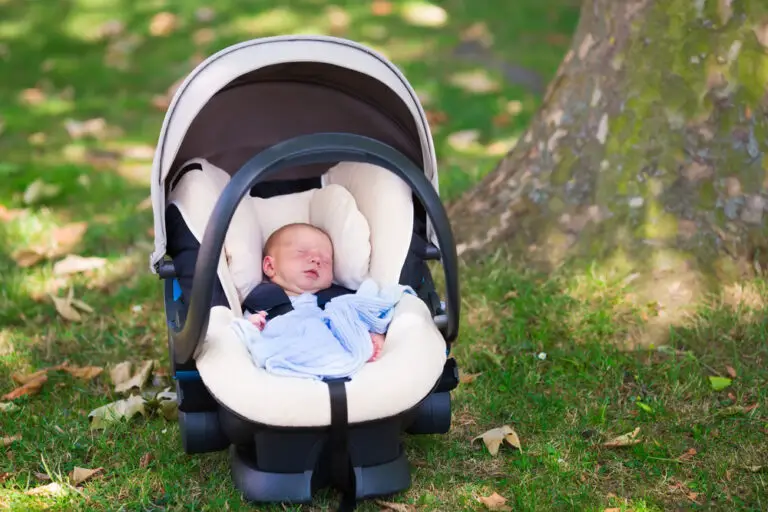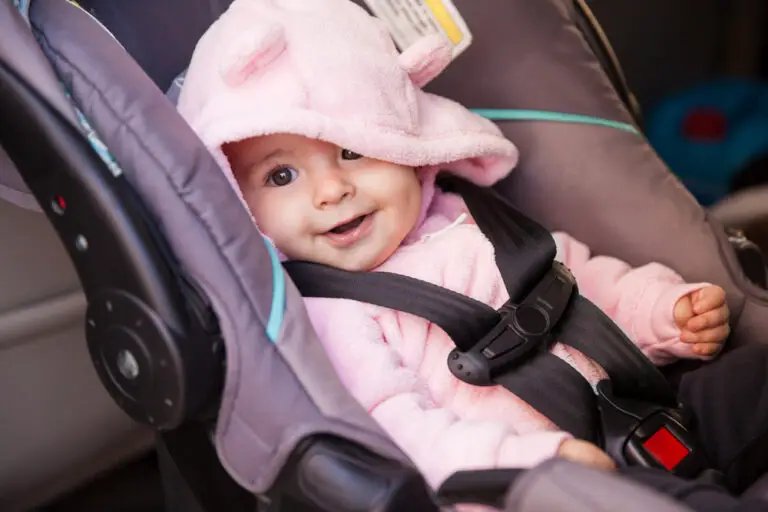Mississippi Car Seat Laws 2024 (Rear, Forward & Booster)

As per the Mississippi car seat laws, a child passenger younger than 4 years must be secured in an appropriate child safety restraint system.
Those aged 4 to 7 years, shorter than 4’9”, or weighing less than 65 pounds must be secured in a booster seat. Violating these laws carries a penalty.
Disclaimer: This content does not constitute legal advice. It is solely for informational purposes. Always check the original source of the law for the latest version.
- MS Rear-Facing Seat Law
- MS Forward-Facing Seat Law
- MS Booster Seat Law
- MS Child Front Seat Law
- MS Child Seat Belt Law
- MS Taxi Child Seat Law
- MS Ridesharing Seat Law
- MS Child Seat Repl. Law
- Leaving Child in Car in MS
- Choosing a Child Seat in MS
- Seat Installation Help in MS
Mississippi Car Seat Laws
Mississippi Rear-Facing Car Seat Law
There is no specific rear-facing car seat law in Mississippi. Under the Mississippi car seat regulations, children below 4 years of age have to be restrained in a federally approved child safety system. (1)
Despite there being no Mississippi rear-facing child seat law, the state has some official recommendations. The Mississippi State Department of Health states that small children should ride in an infant rear-facing seat till they outgrow it. (2)
These are considered to be the safest for a child. The legal rear-facing car seat age in Mississippi is absent. But the State recommends that children should ride in a rear-facing seat till the age of 2 years.
A violation of these rules carries a fine of a maximum of $25. (3) The driver will be held responsible for the violation.
Age: Less than 4 years (Recommended: Newborn to 2 years)
Penalty: Maximum $25
Mississippi Forward-Facing Car Seat Law
There is no express forward-facing car seat law in Mississippi. But all children under 4 years of age must be secured in a federally approved car seat. (1)
Since there is no Mississippi forward-facing child seat law, it is best to refer to the guidelines of the Mississippi State Department of Health. The forward-facing car seat age in Mississippi is absent.
But the Department states that children should ride in forward-facing seats with a harness and tether till they outgrow their maximum height and weight limits. (2)
The National Highway Traffic Safety Administration (NHTSA) also recommends keeping children in forward-facing seats till they outgrow them. This may occur between the ages of 4 and 7 years.
A breach of these provisions of the Mississippi state law carries a penalty of a maximum of $25. (3)
Age: Less than 4 years
Penalty: Maximum $25
Mississippi Booster Seat Law
According to the child booster seat law in Mississippi, a child passenger who is at least 4 years old but less than 7 years old and shorter than 4’9” or weighs less than 65 pounds must be secured in a belt-positioning booster seat. (1) The seat can be a high-back or a backless booster seat.
The booster seat age in Mississippi is 4 to 7 years. As per the State Department of Health, children can ride in booster seats till they are big enough for the seat belt to fit properly.
More than weight, it is the height that is important. Once your child is 4’9” tall, they can use a seatbelt.
Disobeying Mississippi booster seat requirements will render the driver liable to a fine of a maximum of $25. (3)
Age: 4 to 7 years
Height: Shorter than 4’9”
Weight: Less than 65 pounds
Penalty: Maximum $25
Mississippi Child Front Seat Law
There is no clear child front seat law in Mississippi. But the Mississippi State Department of Health states that children younger than 13 years should ride in the back. (2) This is according to the recommendations of the American Academy of Pediatrics (AAP).
While an explicit front seat age in Mississippi is not mentioned, children can ride in the front seat if it is absolutely required. However, they must be placed in a child passenger safety system that is appropriate for their height and weight requirements.
In the case of a rear-facing seat, the passenger-side airbag must be deactivated. For a forward-facing seat, the vehicle seat must be pushed as far back from the dashboard as possible.
The driver will be held responsible for any violation of the child seat requirements in Mississippi. He will be fined a maximum of $25. (3)
Age: Recommended: 13+ years
Mississippi Child Seat Belt Law
According to the child seat belt law in Mississippi, children older than 7 years and at least 4’9” tall have to wear an adult safety belt.
Those between the ages of 4 and 7 years and shorter than 4’9” or weighing less than 65 pounds have to wear a seat belt in a booster seat. (1)
Seat belt rules in Mississippi don’t apply to vehicles registered for farm use, those used by a rural letter carrier of the US Postal Service, or buses.
A child who is medically unable to wear a seatbelt and carries a written verification from a licensed physician is also exempt.
All passengers are required to follow Mississippi children’s seat belt law, regardless of whether they are in the front seat or the backseat.
Not wearing a seatbelt as per the above requirements carries a fine of maximum $25. (4)
Age: 7+ years
Height: 4’9” or taller
Weight: 65+ pounds
Penalty: Maximum $25
Mississippi Taxi Child Seat Law
According to the taxi child seat law in Mississippi, taxis are required to have a child passenger safety system in place. The driver will be liable for providing a federally approved taxi child seat in Mississippi.
As per Mississippi child seat laws, every person transporting a child passenger is required to have an appropriate child restraint system in the vehicle.
Children should travel in a rear-facing seat for up to 2 years of age. They can then move to a forward-facing seat. Those between the ages of 4 and 7 years and shorter than 4’9” or less than 65 pounds have to be secured in a booster seat. (1)
The taxi driver can choose an all-in-one car seat. It can fulfill the functions of all three types of seats.
Mississippi Ridesharing Child Seat Law
The ridesharing child seat law in Mississippi is unclear. The general car seat law states that “every person” who transports children in a vehicle must have a federally approved child passenger safety system in place. (1)
However, it does not specify who should provide a child seat. Nor does it specify if it applies to ridesharing services such as Uber and Lyft.
In such a scenario, it is recommended that either the parents/caregivers or the driver provide an appropriate car seat. For infants, this includes a rear-facing car seat.
For toddlers and young children under 7 years and shorter than 4’9”, a forward-facing car seat or a booster seat is required. Children taller than 4’9” or older than 7 years and weighing more than 65 pounds have to wear the seat belt.
Mississippi Child Seat Replacement Law
There is no express child seat replacement law in Mississippi. The NHTSA recommends replacing your car seat if your vehicle is involved in a moderate or severe accident in Mississippi. This is because the car seat may have defects that are not easily visible.
In case of a low-impact accident, there is no urgent need to replace the child safety seat. A crash is said to be a low-impact one when no passenger sustains injuries, the airbags didn’t deploy, there was no damage to the car seat, and the vehicle could be driven away from the crash site.
In addition to child seat replacement after an accident, you must also replace the seat after it has passed its expiry date as prescribed by the manufacturer or your child has outgrown it.
Leaving Child in The Car in Mississippi
There is no particular law on leaving a child in a vehicle in Mississippi. The Mississippi State Department of Health has a checklist on child safety. It includes not leaving a child unattended in a vehicle. It is a dangerous practice and should be avoided.
The most prominent danger of leaving a child alone in a vehicle is the child suffering from a heat stroke. Children’s bodies heat up more quickly than adults.
Hence, heat stroke can significantly endanger their safety. They can also have an in-car accident, set the car in motion if it is running, or be kidnapped.
Even though leaving a child in the car in Mississippi is technically not illegal, you should never do it. Children must not be left unattended in the vehicle, even for a small duration.
Choosing a Child Car Seat in Mississippi
When choosing a car seat in Mississippi, you can refer to the recommendations by the Mississippi State Department of Health. (2)
For infants and toddlers, a rear-facing seat is the best car seat to use in Mississippi. They should ride these till the age of 2. Once they outgrow it, you can place them in a forward-facing seat with a harness and tether.
Young children shorter than 4’9” should be placed in a belt-positioning booster seat. The best booster seat to use in Mississippi is the one that perfectly secures the child in the lap and shoulder belt. It can be a high back or backless booster seat.
Car Seat Installation Help in Mississippi
It is important to install child passenger safety seats in Mississippi as per the manufacturer’s instructions.
It can be difficult to correctly install a car seat, especially if you have not done it before. You have to follow the car seat manual as well as your vehicle manufacturer’s manual.
To ensure that your car seat is safely installed, you can get it inspected by a certified child passenger safety (CPS) technician. Some of the places where you can get assistance are:
- Children’s of Mississippi: Safe Kids Mississippi (Injury Prevention)
- Mississippi State Department of Health
- Madison Fire Department
- Columbus Fire and Rescue
Mississippi Car Seat Safety Resources
Some resources that you can refer to for more information on car seats in Mississippi include:
- Mississippi State Department of Health: It provides car seat recommendations as well as other resources on child passenger safety.
- Mississippi State University
- Safe Kids Mississippi: The state coalition of the global organization Safe Kids, led by Children’s of Mississippi, the state’s children’s hospital.
- Restraint Use Mississippi- CDC: This guide by the Centers for Disease Control and Prevention lists facts and data as well as resources on car seat laws in Mississippi.
- Mississippi SIDS & Infant Safety Alliance: A professional, non-profit organization, it provides information to professionals and families in Mississippi.
FAQ
How long should a child ride in a rear-facing car seat in Mississippi?
The Mississippi State Department of Health recommends that a child ride rear-facing till they are at least 2 years old or till they outgrow their height or weight limits.
Can you put a rear-facing car seat in the front seat in Mississippi?
Children in a rear-facing seat should be secured in the backseat. If necessary, they can ride in the front seat, but the passenger-side airbag must be deactivated.
Can you put a rear-facing car seat in the middle rear seat in Mississippi?
You can put a rear-facing car seat in the middle rear seat only if it fits properly. You must go through the car seat as well as your vehicle’s manuals.
When can a baby face forward in a car seat in Mississippi?
The Mississippi State Department of Health recommends that children can face forward once they are 2 years old or have outgrown the limits of their rear-facing seat.
How old for a booster seat in Mississippi?
Under the law, a child between 4 and 7 years can use a booster seat. But they should ideally ride a booster seat once they have outgrown their forward-facing car seat.
When to use a backless booster seat in Mississippi?
You can use a backless booster seat if your vehicle seat has a headrest and the child’s ears are not higher than the seat back.
When can a child sit in the front seat in Mississippi?
There is no specific age. The Mississippi State Department of Health recommends that children younger than 13 years ride in the backseat as it is safer there.
When can a child sit in the front seat with a booster in Mississippi?
Children in booster seats should ride in the back. But if absolutely necessary, they can ride in the front seat, but it must be pushed away from the dashboard.
When can a child stop using a booster seat in Mississippi?
A child can stop using a booster once they turn 7 years old or are at least 4’9” tall. They can also stop using it once the adult safety belt fits them properly.
When to switch from 5 point harness to a seat belt in Mississippi?
The ideal time is when the child outgrows the height and weight limits of a 5-point harness in a forward-facing seat. They can then switch to a booster seat.
When can a child use a regular seat belt in Mississippi?
A child can use a regular seat belt once they are 7 years old or at least 4’9” tall. The lap and shoulder belt should fit properly across their collarbone, chest, and hips.
Do you need a car seat in a taxi in Mississippi?
Yes, you need a car seat in a taxi in Mississippi. The driver will be held responsible for any violation of the car seat laws.
Do you need a car seat in a Uber in Mississippi?
The law is unclear. But either the caregiver or the driver should provide a federally approved and appropriate car seat to ensure the child’s safety.
Do you need a car seat in a Lyft in Mississippi?
The law does not say anything. But it is better if the caregiver or driver can provide an appropriate car seat to ensure the child’s safety.

Rishima Rawat
Rishima Rawat is a lawyer and legal writer with over six years of writing and legal experience. She earned her LLB degree from the West Bengal National University of Juridical Sciences, Kolkata. With a passion for child safety, she’s written extensively about the U.S. car seat laws in ParentingMode. She collaborates with businesses and law firms globally, enhancing their online content. Her insights are also published in legal journals like RGNUL, NLIU, and RMLNLU Law Review. Committed to the cause of education, she has volunteered with IDIA, which helps underprivileged children in India to access legal education. She has also worked with Enhelion Knowledge Ventures, a leading legal ed-tech platform in India that provides students with affordable courses in law. Fluent in English and Hindi with elementary proficiency in Spanish, Rishima combines her legal expertise with a dedication to child safety.






